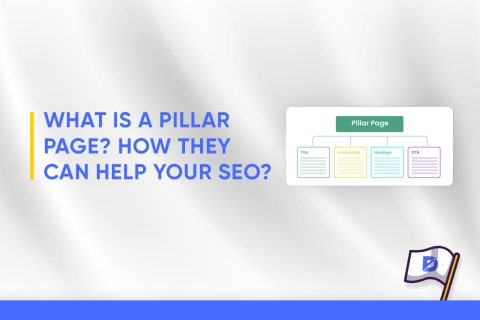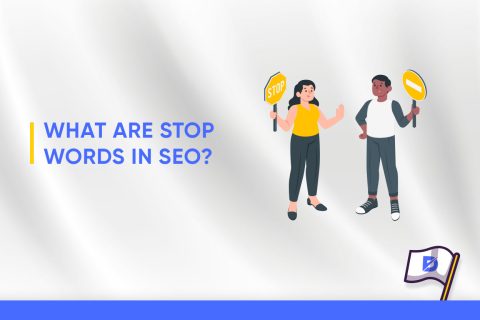In the fast-paced digital marketplace, real estate SEO has become more than a buzzword; it’s a vital component of any successful property marketing strategy. With most homebuyers starting their search online, the importance of optimizing real estate websites and listings for search engines cannot be overstated. This comprehensive guide is designed to walk property professionals through the intricacies of SEO for real estate.
The Importance of SEO in Real Estate
SEO in real estate is no longer a luxury—it’s a necessity. Being visible on search engines is critical in a market where most buyers initiate their property search online. The right SEO strategy can place a real estate brand at the forefront of potential clients’ searches, significantly increasing the chances of property listings being viewed and acted upon. Furthermore, SEO is not just about visibility but also credibility. By ranking higher in search results, real estate professionals signal to prospective buyers and sellers that they are authoritative and trusted figures in the market. Therefore, investing in real estate SEO services is not just about gaining traffic. It’s about building a reputation and establishing a dominant online presence in a highly competitive industry.
SEO as a Pillar of Digital Real Estate Marketing
In the competitive world of property sales and investments, real estate SEO acts as a foundational pillar. It is the key to increasing visibility in search engine results, capturing the attention of potential buyers, and establishing credibility in the real estate market. By utilizing search engine optimization strategies tailored for real estate professionals, businesses can create a robust online presence that outperforms competition and drives organic traffic to their listings.
Evaluating SEO Impact on Real Estate Conversions
SEO for real estate agents isn’t just about attracting website visits; it’s about converting those visits into actionable leads. Through detailed case studies, it’s clear that a well-implemented search engine optimization strategy directly correlates with increased inquiries, more property showings, and, ultimately, a higher number of closed deals. By analyzing the journey from keyword to conversion, realtors can refine their SEO tactics to better meet the needs of their target market.
Real Estate SEO Keyword Proficiency: Research to Ranking
Real Estate search engine optimization is a vital strategy for real estate companies to improve their online presence. They can attract more potential clients through search engines like Google. The process from research to ranking involves several steps:
- Keyword Research
- Competitor Analysis
- SEO Strategy Planning
- On-Page SEO
- Content Creation
- Local SEO
- Off-Page SEO
- Technical SEO
- Tracking and Analytics
- Continuous Improvement

Embarking on a journey in real estate search engine optimization starts with thoroughly exploring keyword research and thoroughly examining your competitors’ strategies. This foundational step is critical and should be followed by the application and ongoing optimization of your SEO tactics.
Harnessing High-Value Keywords for Real Estate Listings
Selecting the right real estate SEO keywords is crucial for any property professional looking to stand out. These keywords must be carefully researched and chosen to align with the queries potential clients are using. Whether it’s SEO for real estate investors or local SEO for real estate agents, the goal is to ensure that your listings appear at the top of search results for the most relevant and high-value search terms.
Saturating Real Estate Content with SEO Value
Beyond keyword selection, SEO for real estate websites involves saturating your content with SEO value without compromising quality. This means incorporating real estate keywords for SEO naturally within valuable content that answers questions, showcases properties, and positions you as a real estate SEO expert. It’s a balance of quality content and SEO sophistication that drives results.
Monitoring and Analyzing Keyword Performance for Sustainability
SEO isn’t a one-and-done deal. For real estate SEO experts, constant monitoring and analysis of keyword performance are essential for sustainable success. This involves tracking rankings, understanding the impact of algorithm updates, and adapting strategies accordingly. Whether it’s real estate investing SEO or search engine optimization for commercial properties, ongoing analysis ensures your SEO efforts yield long-term benefits.
Website Optimization and User Experience (UX) in Real Estate SEO
Paying attention to website optimization and user experience (UX) plays a critical role in real estate SEO. When customers enter your website, they first look at their requirements. At this point, the following features are important;
- Webpage speed
- Informational content
- Mobile Usability
- CRO (A/B Testing)

Focusing on website optimization and User Experience (UX) is a pivotal aspect of a successful real estate SEO strategy. As customers land on your website, their immediate needs take center stage. They are looking for quick loading times, insightful and relevant information, seamless navigation on their mobile devices, and clear calls to action.
Flawless User Journey: From Landing Page to Contact Form
The user’s online journey should be seamless, from the initial search query to filling out a contact form on your real estate website. Real estate website SEO encompasses everything from site structure to page loading speed, ensuring that potential clients find what they need quickly and effortlessly. An optimized user journey reduces bounce rates and increases the likelihood of a visitor becoming a lead.
Engaging and SEO-Optimized Content Creation for Realtors
Creating content that is both engaging and optimized for search engines is a critical skill for any real estate agent SEO strategy. This content has to appeal not only to search engines but also to the real people who are reading it. By crafting informative blog posts, insightful market analysis, and enticing property descriptions, realtors can enhance their real estate SEO services while providing value to clients.
Technical SEO: Ensuring Seamless Website Functionality and Speed
Technical SEO is often overlooked in real estate SEO strategies, yet it is fundamental to the success of any online real estate marketing effort. A real estate SEO company must ensure that technical elements like site speed, mobile-friendliness, and secure connections are in place, as these factors significantly influence search rankings and user experience.
Conclusion
Real estate SEO is an expansive and dynamic field that is crucial for the success of property professionals in the digital age. From developing a nuanced understanding of SEO real estate marketing to implementing real estate SEO strategies that drive conversions, the journey toward SEO proficiency is ongoing. Whether you’re a seasoned real estate SEO consultant or a realtor just starting to explore the digital landscape, the tips and strategies outlined in this guide serve as a roadmap to elevating your online presence and reaching your real estate business goals.
Frequently Asked Questions About
SEO in real estate refers to optimizing a real estate website to rank higher in search engine results. This is important because higher visibility leads to more traffic, which can mean more leads and sales. With most homebuyers starting their search online, being visible on search engines like Google is crucial for real estate professionals.
Local SEO for real estate agents is essential because it targets potential clients in the specific geographic area where the agent operates. By optimizing for local search terms and listings, agents can attract more relevant inquiries, which are more likely to convert into viewings and sales. It’s about connecting with people actively searching for properties in the area.
Effective real estate SEO strategies include keyword research to find what potential clients are searching for, creating high-quality content that addresses those search terms, optimizing website speed and mobile responsiveness, building local citations and backlinks, and maintaining an active presence on social media platforms. Additionally, regularly updating listings and content to keep them fresh and engaging is vital for ongoing SEO success.





No comments to show.